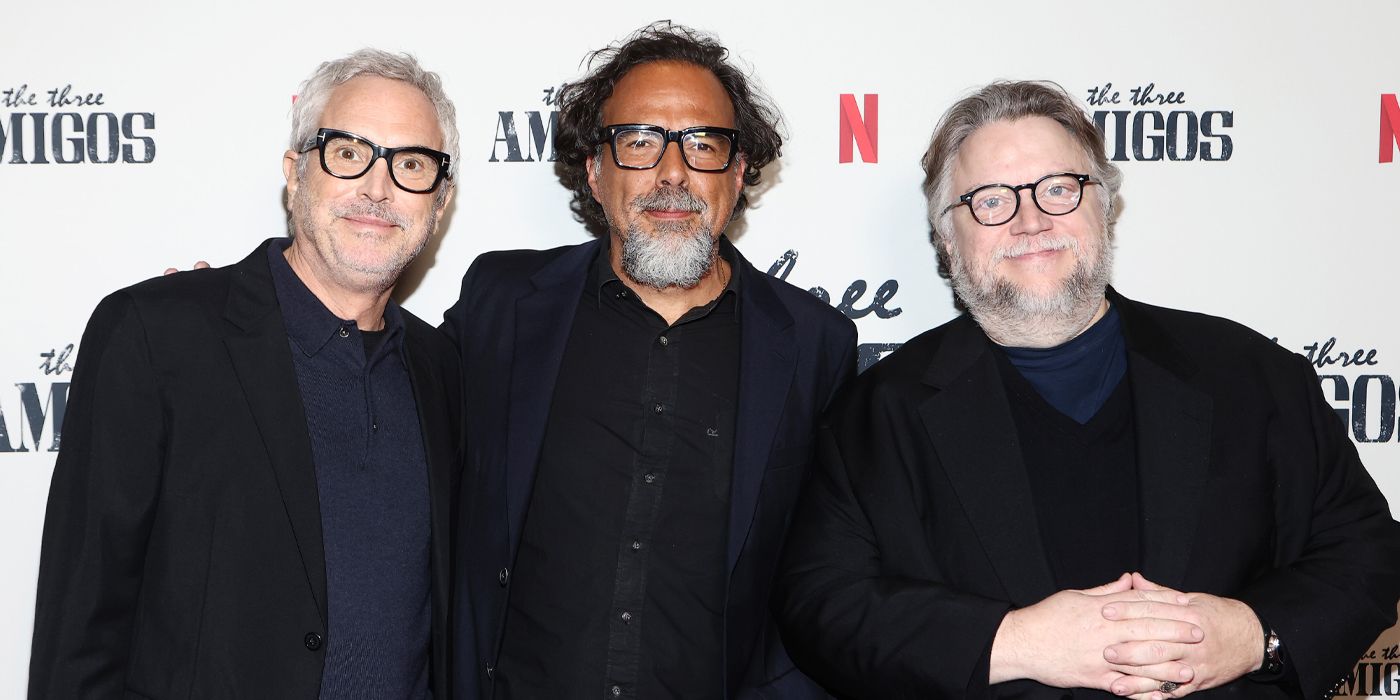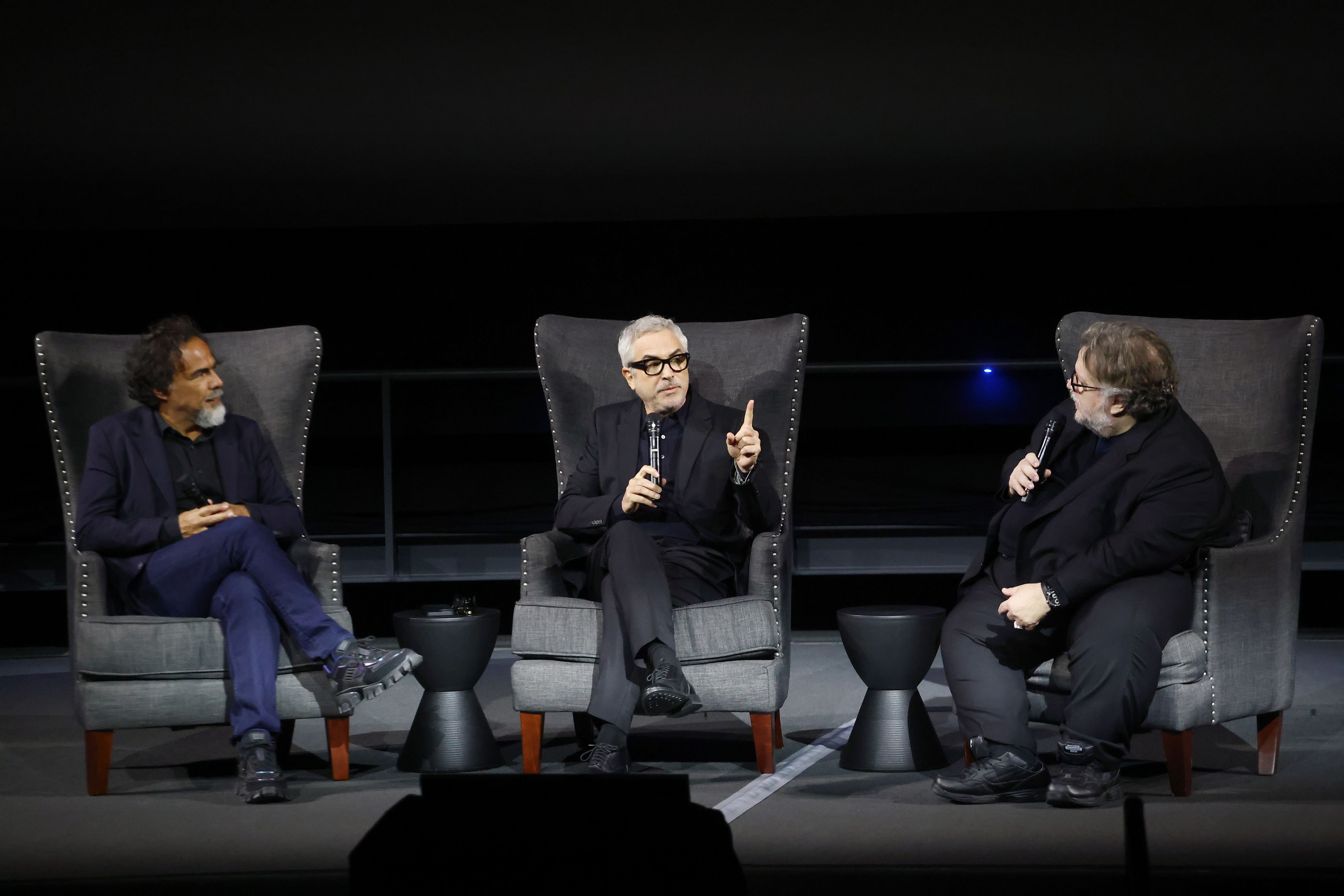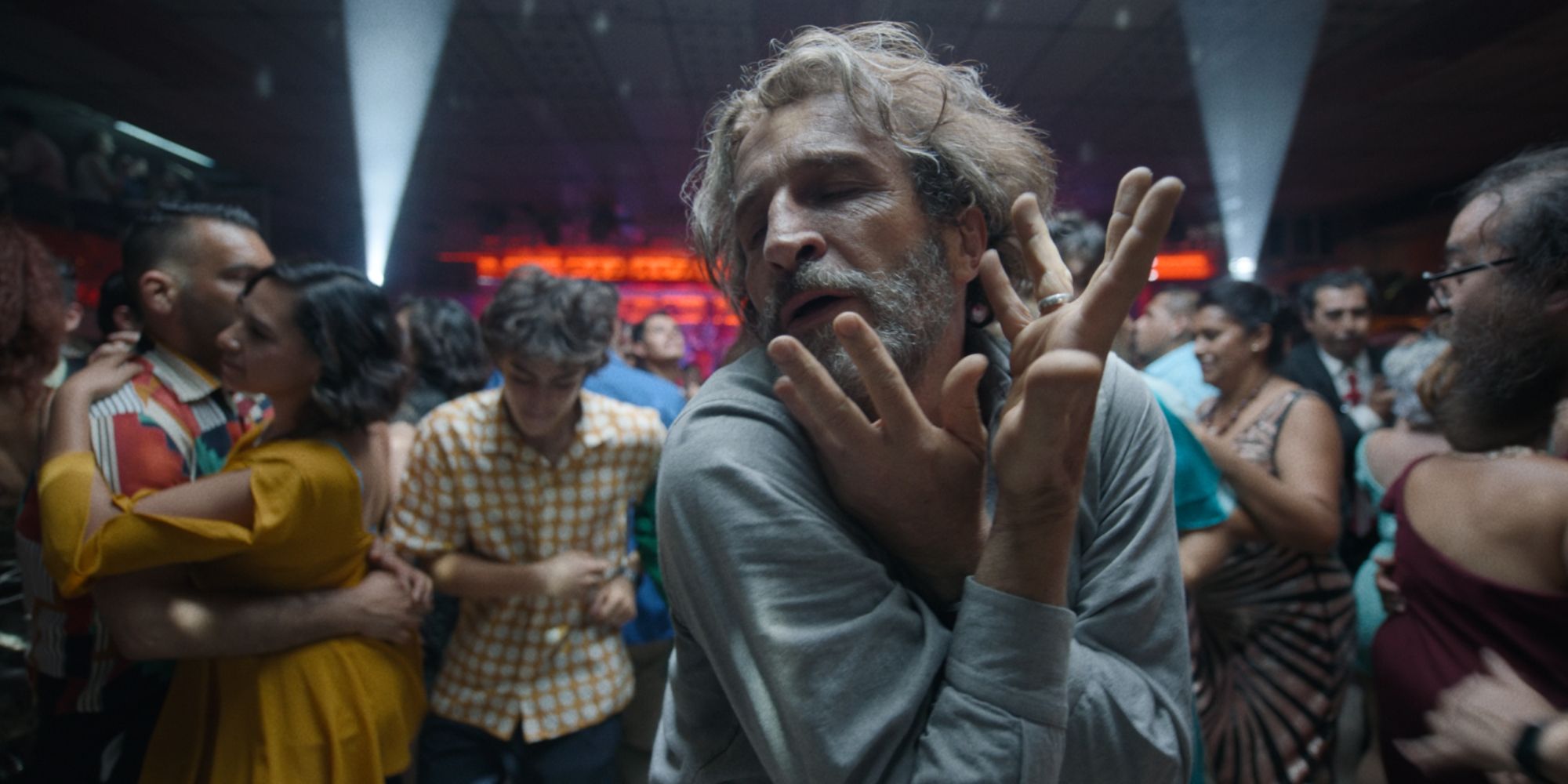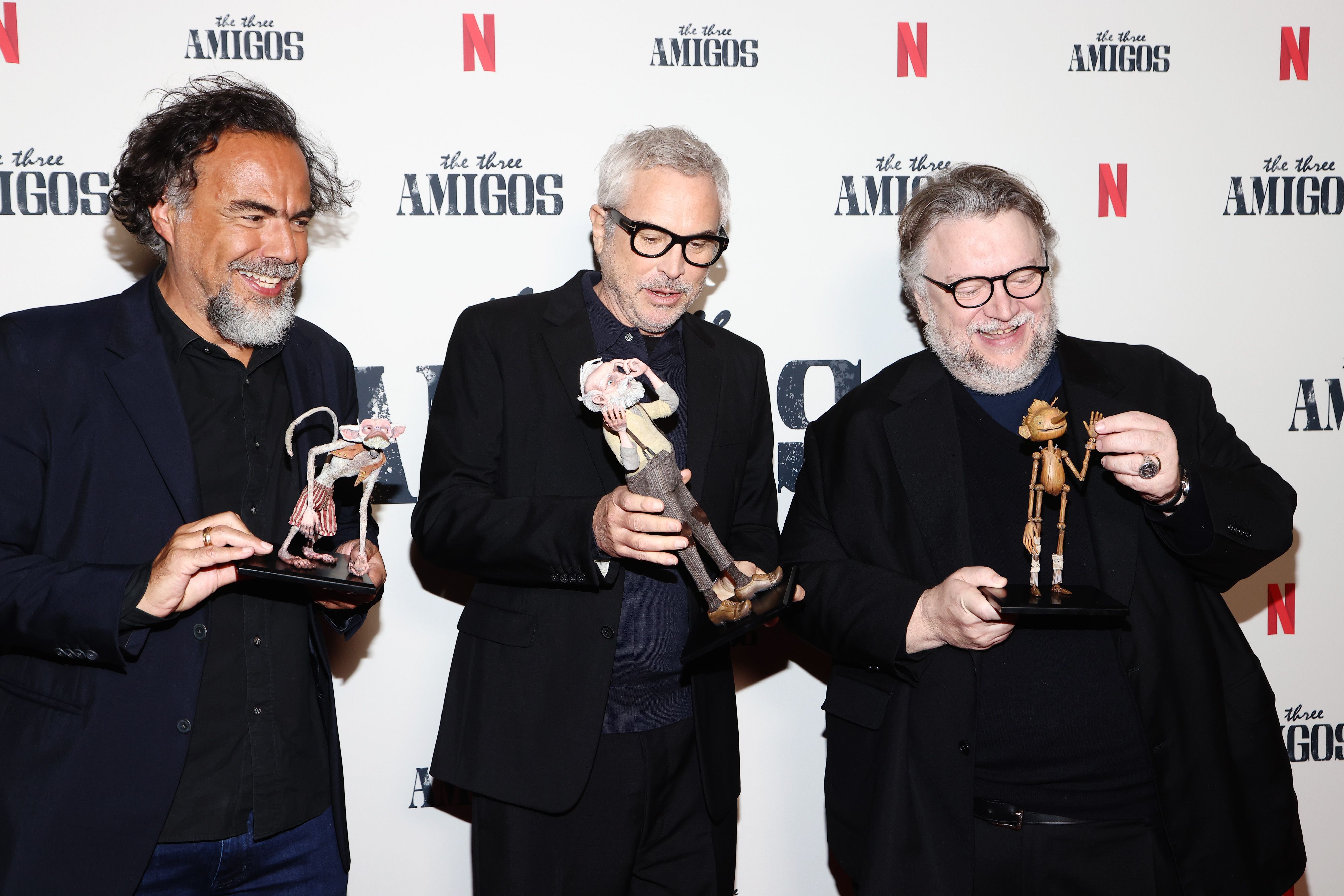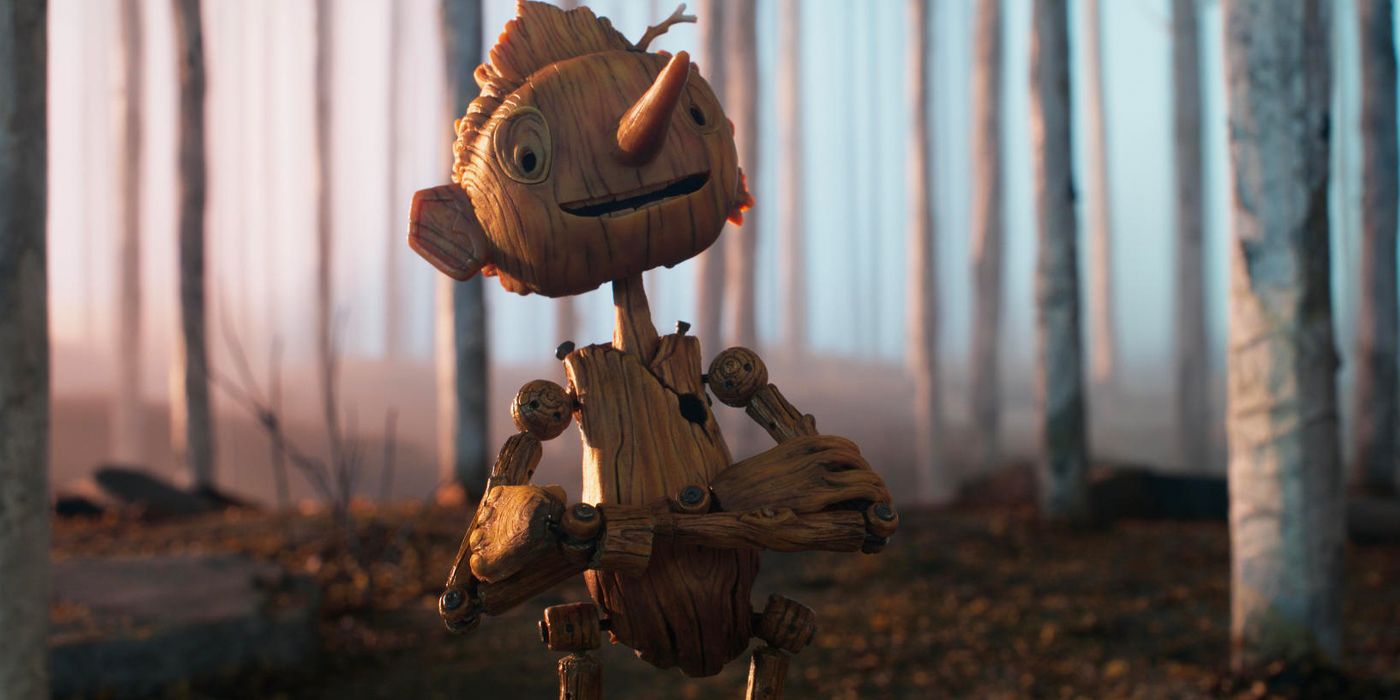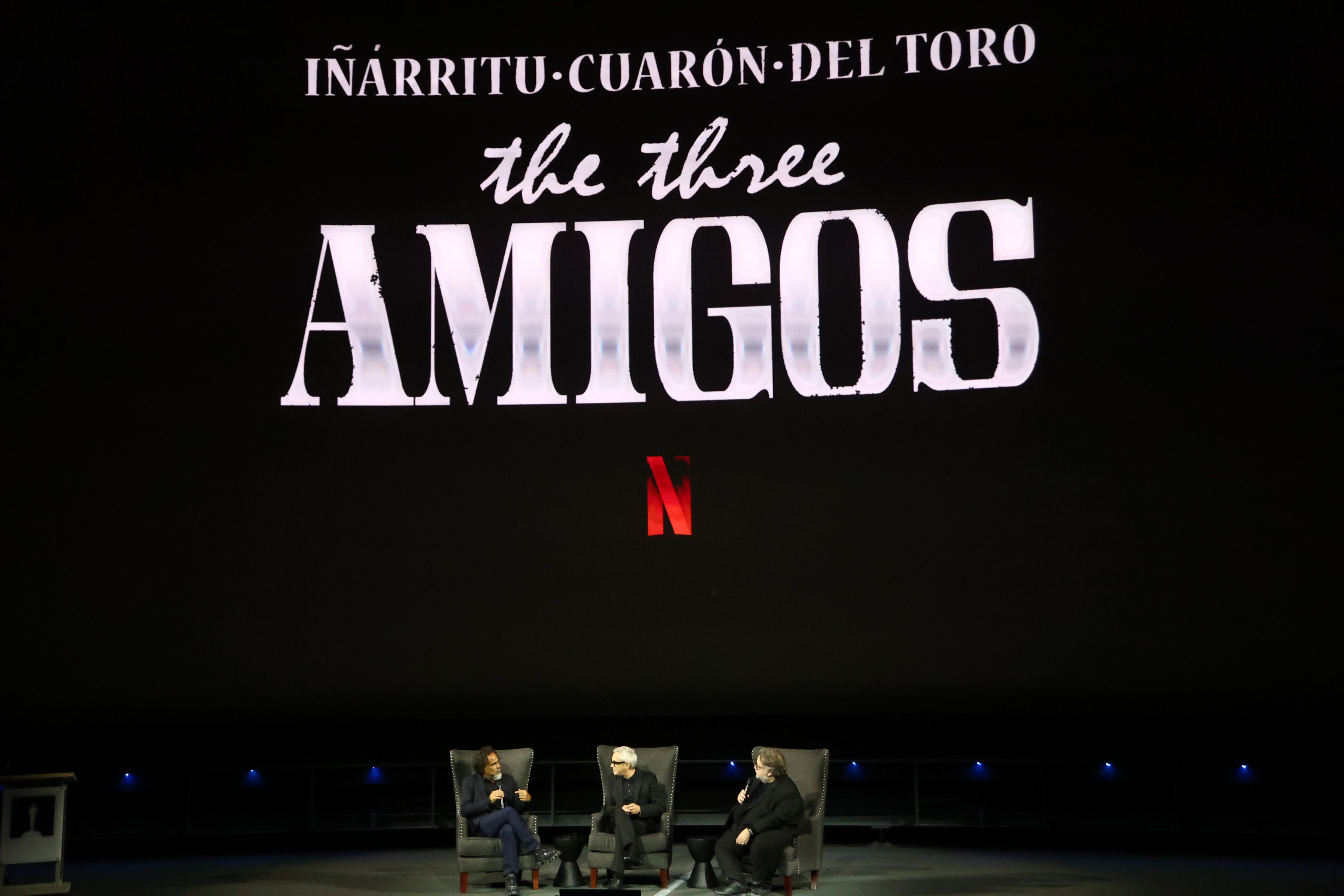Alejandro G. Iñárritu, Guillermo del Toro, and Alfonso Cuarón are three of the most iconic and influential Mexican filmmakers of the modern era and of all time. The trio, given the nickname of The Three Amigos, recently came together for a special event known as "A Special Evening with The Three Amigos" on January 6 at the Academy Museum in Los Angeles, California. During this hour-long event, which was attended by Collider's own Steven Weintraub, the three Oscar-winning directors and friends played off of one another, cracked jokes, told stories, and delved into their long and storied careers as well as each other's recent projects.
With Cuarón serving as moderator, the event opened with del Toro taking the three of them back to the point where they were 16 years ago in 2007, when all three of them were nominated for Academy Awards (del Toro's Pan's Labyrinth receiving 6 nominations and 3 wins, Iñárritu's Babel getting 7 nominations, including Best Picture and winning Best Original Score, Cuarón's Children of Men getting 3 nominations) and wanted to discuss how the three of them had changed since then. "I think it will be really beautiful to talk about where we were back 16 years ago. It was a really interesting time, we were breaking some ground in some way,” said del Toro. "But none of these were done by design. I think people think of a career as something that you plan, but they just happen to us. We were just looking for a way to make a movie."
To start this travel back 16 years, Cuarón asked Iñárritu how he saw himself as a filmmaker in and around the years of Babel's release and award-winning success, he noted that it was a point of transition for him, saying:
"I felt like I was kind of... I knew that it was a good moment to end something that I have, in a way, explored to the end of what I could explore, and I knew it was the beginning of something that I need to start. It was a paradox moment, in a way, that the film got attention and nominations, but deep inside me, I knew that it was the end of the story. So, in a way, you have to pretend that 'Yeah, this is great,' but I knew that I was about to start something that I didn't have one clue about what to do next... and it was the end of that language and format that I was comfortable in... I knew I had to reinvent it."
On the topic of Pan's Labyrinth, which was filmed in Spain and completely spoken in Spanish, Iñárritu noted that while he spoke of trying to move forward, the first thing he had to do was go back to his roots, which he did with 2010's Biutiful which was his next film after Babel and was his first film in his native Spanish language since his debut feature Amores perros in 2000."I went back to doing something from my roots, my understanding in order to move forward."
After a clip highlighting Iñárritu's work, Cuarón brought up a consistent theme of death since his first film, both literal and metaphorical, which comes along with the end of a character. When asked where this constant theme came from, Iñárritu said that it is a "very primal fear and consciousness that we all share that is that no matter which race, nationality or whatever political belief, we all will die." He explained that when he would look at photos and ask his father who someone was and would get the response that they were gone, it made him conscious at a young age that eventually everyone will be that person in that photo. Cuarón noted that one thing in common between Iñárritu and del Toro's work is how "deeply biographical" their works are, making them "infused by emotion and experience." Iñárritu discussed that whenever an artist creates, it becomes an "X-ray of your emotional state, your circumstance. Even if you deny them or suppress them, you will come out and say 'I was so suppressed, I was so disoriented, I was so lost.'"
Looking back to his own work, Cuarón discussed how he can't even watch them because he doesn't want to see things that he doesn't want to remember, sharing that certain aspects of his past films represent a time in his life that featured, "Some intensity that sometimes I don’t recognize.” del Toro humorously cut in by saying, “I recognize that intensity. Everything he says is intense.” He also shared how Iñárritu describes his process of creating guacamole. "‘And then you take the avocado, and you slice it! And then the lemon gives you its life! And then you chop the onions, and avocado is born!'” Of course, Iñárritu had a quick-witted response, saying, “And before I finished the avocado, he ate it. That’s why I’m so intense about it.”
After a similar highlight clip for del Toro, Cuarón asked him about some of the themes that permeate throughout his work that he recognizes. He specifically names two: the virtue of disobedience and the right to be fucked up.
"One of them is the virtue of disobedience, which I think is vital. To be disobedient is to be a thinking person. And I think the other one is the absolute inalienable right to be fucked up, to be imperfect, which I defend. I think that imperfection is one of the most beautiful things.”
Cuarón also noted that del Toro is similar to Iñárritu in that he describes himself as a "death groupie," saying that he has probably been thinking about death since the age of 7, comparing his wait for death to how people waited for David Bowie to come to town. Cuarón also commented on del Toro's obsession with monsters, which he says he loves because, again, a monster's imperfection. He went on to say:
"I think the most tyrannical fucking thing we made is nice. The tyranny of nice fucking chokes me! We are all complex people. We are paradoxical people. 9 am, you're a saint. 9:30 you're an asshole. 10:30, you're a great father. 11:30, you're a bad son. You should be every color in the rainbow, you shouldn't be black or white and I think the monster is that. It's imperfection, it's beautiful."
When speaking on how many of his monsters are performed by himself, he touches on just how much he identifies with creatures. "I saw Frankenstein, I said that’s that’s my Jesus right there. That’s what I believe in. That’s my saint.” Iñárritu added that there is a big problem with del Toro wanting to be a monster: he's too nice.
The Current Work of "The Three Amigos"
Moving away from the past and onto their present works, del Toro and Iñárritu discussed Pinocchio and Bardo, and the discussion began by showing a clip from the opening of the latter. Iñárritu commented on just how personal this project was for him, saying it was different and demanded more from him than any other film. He went on to say, "It needs to come from a very introspective thing, which I think age has to do, a lot... I could not have made this film... I will not be ready 5 years ago or 10 years because, in a way, of all these things that come from a deep personal experiences."
He also noted that the loss of his son when he was born and the process of almost losing their second son to the same disease, which included a month in a "life and death situation." He shared:
"Time allows you to start thinking about those moments in another way, and even humor can be allowed, but for that to happen you need a lot of maturity, you need a lot to work on deeply and to understand that those things, life and death, are out of your hands... I felt the need to surrender to all the things I was kind of protecting... I think art exists because life is fucked up for all of us, it's not perfect, It's not enough, and art allows you, in away... allows you to get something out of pain and liberate pain in a way."
He explained that Bardo is an allegory of his life that is a way to "liberate" some of his own pain and has found that people in screenings that people who have also felt pain have been able to find their own liberation when watching the film. “I think in this film, I wanted to be snorkeling. That you can be snorkeling and see the depth but from the light and from the safety net, from the water and see the sun and then the grace and then the dark, but from that perspective, that’s the way I think life is. We can navigate through pain, but I think always there is light.”
Moving onto del Toro's Pinocchio, he touched, once again, on the idea of imperfection and its relationship to fathers and sons. He also touches on how he sees the film as a labor of love and how every single person that worked on it clearly poured so much love and passion into the creative process and the project as a whole. "It is a very human movie for me... the movie is so beautiful. When I came up with the thought of Pinocchio having a dialogue with death, it was when the movie appeared." He also discussed how the film touches on the idea of miracles and how people receive miracles every day of their lives and fail to recognize them, pointing to Gepetto receiving a miracle in the form of Pinocchio. “This is the only Pinocchio movie I know that the one learning is Geppetto.” Iñárritu said, “It’s not Pinocchio learning to be a real boy, but Geppetto learning to be a real father. And that was very important for me.”
After a quick thank you to Iñárritu for speaking on how much he appreciated the physical prop of Pinocchio in the film, del Toro quickly switched the subject to Cuarón, since he hadn't talked about any of his work for the entire event so far. "Did I miss a memo? It's called 'The Three Amigos,' and this fucker hasn't said anything." Unfortunately, they aren't able to get Cuarón to talk about his own stuff as he quickly moves on to celebrate Pinocchio being on the shortlist for the Oscars before transitioning to a discussion of animation as a whole and how the perception of it in the film industry is flawed. He shared:
"It is incredibly, incredibly, installed in the minds of a lot of people that are in the movie business that animation is a genre for kids, and it's not. It's a medium, and it's a medium for creating beauty and film and art. I think it’s a battle that will take years, but when you see things like that are as perfect as any Miyazaki movie or The Red Turtle, which is an absolute masterpiece, or I Lost My Body, and you know that this medium is not being used in all its potential.”
Cuarón chimed in to say it is being used to its potential but isn't recognized by the rest of the industry, citing Pinocchio as having one of the best screenplays of the year. As Cuarón attempted to move on, del Toro continued to turn the focus onto his friend, who pushed through, leading del Toro to jokingly rename the event to "The Two Amigos."
To close out the event, all three men expressed the gratitude, love, and admiration they have for each other. “I admire the fuck out of you, both of you," said del Toro. "When they say, ‘Well, what is this about?’ I think it’s about love, because I love you, and it’s about admiration, because I admire you. You inspire me every year of my life. We’ve been together professionally since the beginning of our careers, and you have always inspired me, and you’ve always been a companion, a teacher and a brother.” Iñárritu continued by saying how scary it was to approach Cuarón since he already had several projects already completed when he was getting ready for his first TV pilot. "He was already a 'big shot'." Cuarón showed him nothing but kindness, as did del Toro, when they met and helped him finally bring Amores perros into its final form, calling him a blessing in his life. While he says he is blessed he is to be a filmmaker, and while he knows it can be a lonely existence sometimes, he knows he always has a pair of amigos to fall back on. "These two guys. Without them, I would not exist.”
Listen to the entire conversation in the player above.

